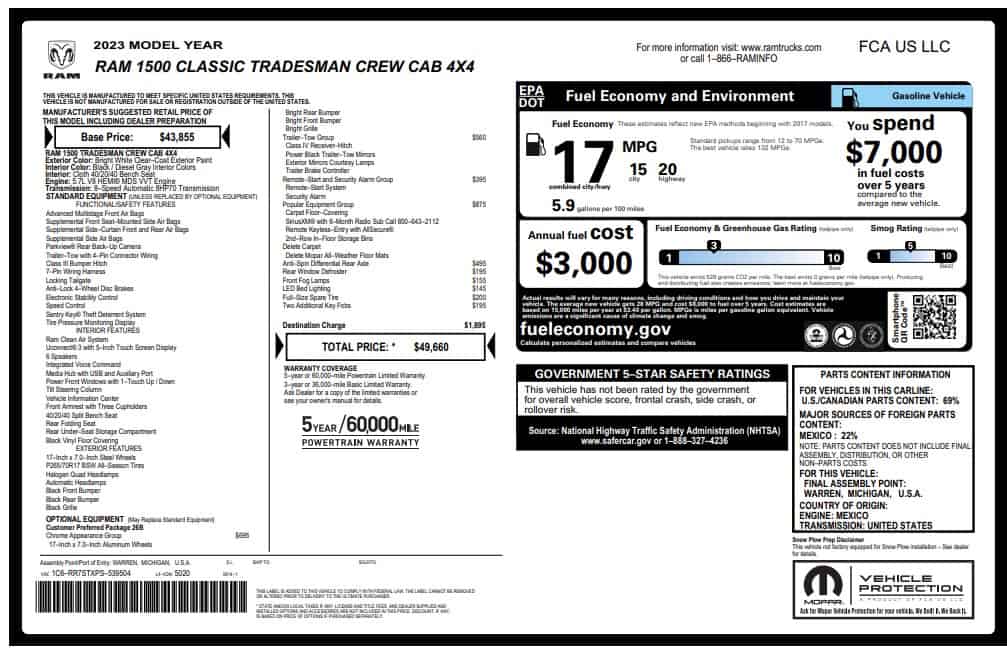UAW Pushes Biden to Rethink Vehicle Emissions Plan (PDF)
The United Auto Workers (UAW) union has called upon the Biden administration to reconsider its proposed vehicle emissions reductions. Currently, the plan mandates that by 2032, 67% of all new vehicles must be electric. Expressing concerns about feasibility and potential market disruptions, the UAW, representing workers at General Motors, Ford Motor, and Stellantis, emphasizes the need for a more gradual and practical approach to achieve the desired transition to electric vehicles (EVs).

As contract negotiations with the Detroit Three automakers approach, the UAW’s plea for a reassessment of the proposed emissions cuts carries significant weight. The union contends that the Environmental Protection Agency’s (EPA) standards should be realigned to better suit the existing manufacturing landscape, which heavily relies on the profitability of light-duty trucks and SUVs. Notably, in the previous year, pickups and SUVs accounted for nearly 60% of all vehicles manufactured by unionized automakers in the United States. Recognizing the pivotal role these vehicles play in funding the transition to EVs, the UAW advocates for a more pragmatic timeline, with stringency gradually increasing over time.
The UAW voices concerns about the hasty implementation of the EPA’s proposed standards, raising apprehensions about potential disruptions in the market that these regulations aim to revolutionize. Stressing the importance of a balanced approach, the union strongly urges the EPA to actively involve all pertinent stakeholders in the decision-making process. It is crucial, according to the UAW, that the new rules are designed to avoid any disproportionate impact on domestic unionized auto production.
In addition to the UAW’s call for revisions, a consortium representing major automakers, including the Detroit Three, has also voiced reservations about the stringent requirements. They argue that the EPA’s proposal is both unfeasible and unreasonable. Echoing these sentiments, Toyota Motor has criticized the excessive stringency of the EPA’s proposal, deeming it inconsistent with historical norms.
Significantly, this marks another instance where the UAW has raised apprehensions regarding the automotive policies of the Biden administration. UAW President Shawn Fain recently vocalized strong criticism of the U.S. Energy Department’s proposal to grant a substantial $9.2 billion loan to a collaborative venture between Ford and South Korea’s SK On. Fain vehemently denounced the loan as a “giveaway” that neglects to consider crucial factors such as worker conditions, union rights, and retirement security. These concerns further contribute to the UAW’s reservations in endorsing President Biden for reelection, particularly with regard to his approach to electric vehicle policies.
Advocating for a Balanced Approach
The UAW’s plea for a reevaluation of the proposed vehicle emissions reductions adds a significant voice to the ongoing discourse surrounding environmental regulations and the future of the automotive industry. With contract negotiations on the horizon, the UAW seeks to influence the EPA’s decision-making process by advocating for a more balanced and realistic approach to the transition toward electric vehicles. By considering current market dynamics and ensuring fairness for all stakeholders involved, the UAW aims to shape a future that is both environmentally sustainable and supportive of the automotive workforce.





